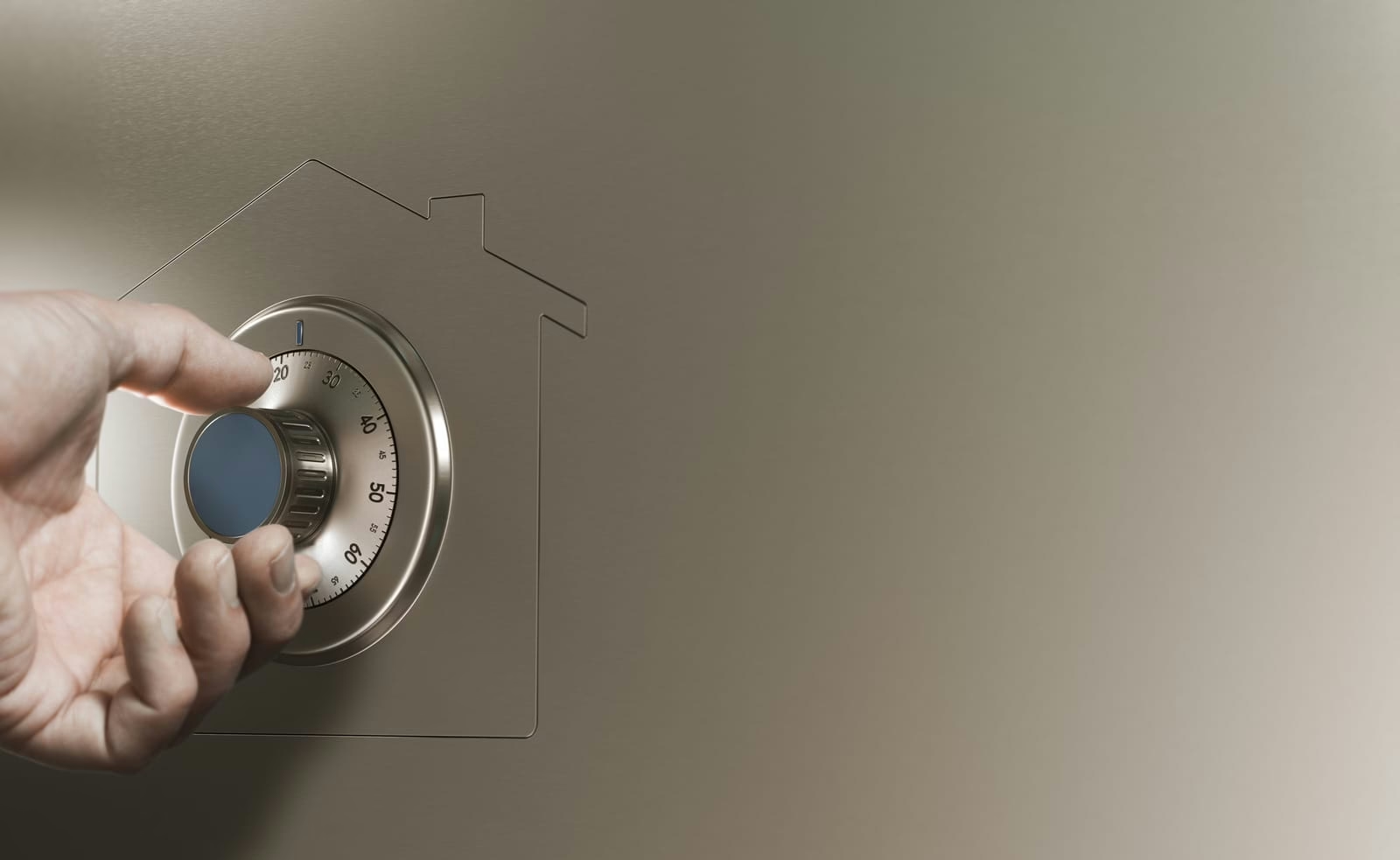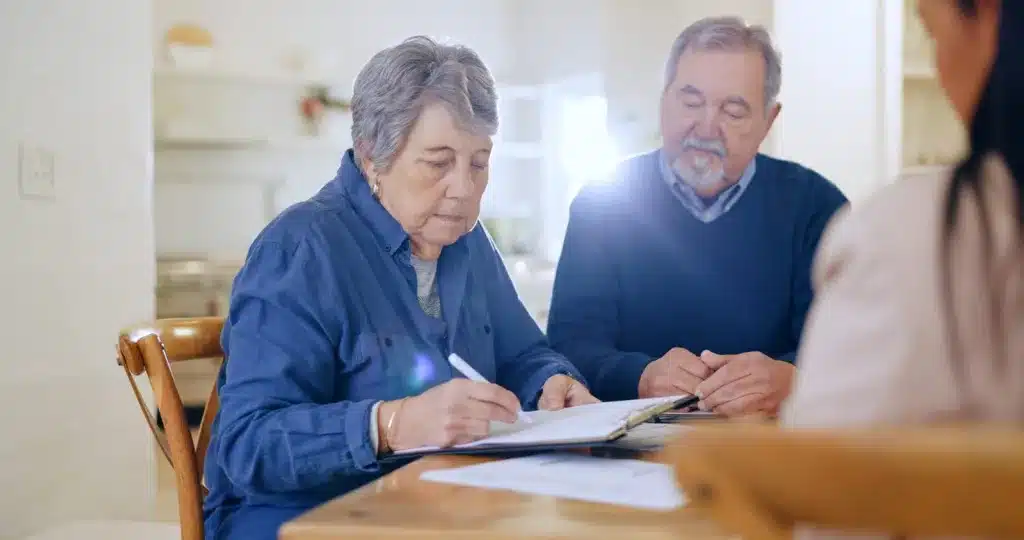Where is My Landlord Holding My Security Deposit During My Lease?
When you rent a home or apartment in Florida, you’re typically required to pay a security deposit to secure the rental property and ensure you fulfill your lease obligations during the lease term. However, many tenants don’t realize that landlords are legally required to handle security deposits in a specific way. Understanding where your deposit is held and what protections exist under Florida law can help ensure you recover your deposit when your lease ends.
At RTRLAW, our real estate attorneys help tenants understand their rights and hold landlords accountable if they fail to follow Florida’s security deposit laws. Florida’s rental laws provide important protections for tenants, but many landlords fail to follow proper procedures for handling security deposits. Here’s what you need to know about where your landlord is supposed to keep your deposit and how to ensure it’s returned, including understanding where your landlord is holding your security deposit during your lease. Florida law requires that security deposits be held in a bank account separate from the landlord’s personal funds.
What Are Florida’s Security Deposit Laws and Holding Requirements?
Under Florida law, landlords must handle security deposits responsibly and cannot mix them with their personal or business funds. Security deposits must be held in a separate account at a financial institution. In addition, landlords must notify tenants in writing of the name and address of the bank holding the security deposit. This law protects your money and ensures it’s available when you move out.
Florida landlords must meet the following key requirements when renting an apartment:
- The security deposit cannot exceed one and a half times the monthly rent for rental units under Florida law.
- The deposit must be placed in a separate account to protect the tenant’s funds. If funds are kept in a checking account with an interest rate of 1% or less, tenants may not be eligible to receive any interest.
- Landlords must provide proper documentation and follow legal procedures to ensure the deposit is returned or deductions are justified.
1. Security Deposit Limits
The security deposit cannot exceed one and a half times the monthly rent for rental units in Florida. This limit helps prevent landlords from demanding excessive deposits that may burden tenants financially. The deposit covers unpaid rent, damages beyond normal wear and tear, or other legitimate expenses.
2. Separate Account Requirements
The security deposit must be placed in a separate, interest-bearing account or otherwise protected. For example, in New York, the deposit must be held in an interest-bearing account at a New York State bank. Landlords cannot use the funds for personal or business expenses during your tenancy. The deposit must remain accessible for return when your lease ends.
If you rent the unit for at least twelve months, the landlord must pay you the interest earned on the security deposit, minus 1% for administrative costs. A landlord who fails to manage the interest properly may forfeit the right to keep any portion of the deposit.
3. Documentation and Record-Keeping
Landlords must provide tenants with a security deposit receipt showing the date, amount, and method of payment. Proper documentation protects both parties and creates a clear transaction record. Tenants should keep copies of all deposit-related documents.
Does My Landlord Have to Tell Me Where My Deposit Is Being Held?
Yes. Florida law requires landlords to provide written notice of where your security deposit is being held. This notice must be provided within 14 days of the lease start date and must include:
- The landlord’s name and address
- The bank’s name and address where the deposit account is located
- Details about how the deposit is protected
- Information about any interest accrued on the deposit
Landlords have 45 days after move-out to return the security deposit or notify the tenant of their intent to withhold it. Within 14 days after the tenant vacates, the landlord must provide an itemized statement indicating any deductions. If the landlord fails to provide this statement, they must return the full deposit within 14 days.
Landlords may be required to send this information via certified mail. Tenants may choose how interest is paid—subtracted from rent, held in trust, or paid in a lump sum. Failure to provide proper notification may affect a tenant’s ability to recover the deposit.
Damages and Normal Wear
Understanding the difference between damages and normal wear is essential. Landlords may only claim from the security deposit for actual damages, not ordinary wear and tear. Normal wear and tear refers to gradual deterioration from everyday living, such as scuffed walls, worn carpet, or faded paint. Landlords cannot withhold deposits for these issues.
Damages go beyond normal use—such as broken windows, large holes in walls, or stained carpets requiring replacement. If you cause such damage or leave unpaid rent, the landlord may deduct those costs from your deposit. Security deposits should not be used as the last month’s rent unless agreed upon in writing.
To protect your deposit, always give proper notice before moving out and provide a forwarding address in writing. Keep copies of your lease, deposit receipt, and all correspondence. Document the property condition at move-in and move-out with photos and a checklist.
Tenants also have the right to dispute deductions. If the landlord does not return the deposit or provide a written list of deductions within the required timeframe, you may file a claim in small claims court. The court may order your landlord to return the deposit, plus interest and applicable fees.
If a landlord fails to follow legal procedures when withholding a deposit, the tenant may sue for double the deposit amount. Many states require landlords to return the deposit or provide an itemized statement within 14 to 60 days after move-out.
In summary, knowing your rights and responsibilities regarding damages and normal wear helps you avoid disputes and ensures you receive your full refund.
What Happens if My Landlord Mishandles My Deposit?
Some landlords ignore Florida’s legal requirements and fail to notify tenants of the deposit’s location or improperly use the funds. This can cause major issues when recovering your deposit.
If you suspect a violation of deposit laws, you may be able to:
- Recover your full deposit, even if the landlord made improper deductions
- Hold the landlord accountable for not following procedures
- Seek additional remedies if the landlord misuses your funds
If the landlord claims you owe rent or damages exceeding your deposit, they may take legal action to recover the difference—or you may sue for recovery. Tenants are not responsible for normal wear or deterioration but may be liable for actual damage, such as broken fixtures or severe stains.
What Should I Do If My Landlord Won’t Tell Me Where My Deposit Is?
If your landlord fails to provide notice of where your deposit is held, take the following steps:
- Request the information in writing. Send a certified letter asking for the deposit details and demanding compliance with Florida law. Keep a copy for your records.
- Document your lease agreement and move-in condition. Review your lease for deposit information and inspect the property within seven days of possession, taking photos and notes.
- Know your dispute resolution rights. You have seven days to respond to any damage claims in writing; failure to do so implies agreement with the deductions.
If your landlord still refuses to comply, you may need legal assistance or to file a complaint with a state agency.
If the property is sold during your lease, the landlord must either return your deposit or transfer it to the new owner, notifying you in writing of the new owner’s details. This ensures your deposit remains protected.
Don’t Let Your Landlord Take Advantage of You—Know Your Legal Rights!
If your landlord fails to disclose where your deposit is held, withholds it unlawfully, or violates Florida’s rental laws, you have the right to take action.
You can:
- Document everything. Keep detailed records, photos, and correspondence.
- Understand the court process. Claims up to $7,000 may be filed in small claims court. Larger cases require district court filings.
- Use available resources. Seek free or low-cost legal assistance.
- Act within time limits. Landlords have 45 days after move-out to pursue damages, and tenants must act promptly to recover deposits.
Florida law is clear: landlords must manage deposits correctly and follow notification rules. If they fail to do so, tenants may take legal action to recover owed funds and related fees.
Don’t let your landlord ignore the law or unfairly keep your deposit. Know your rights, keep accurate records, and be prepared to act to protect your money and your peace of mind.


 CALL US NOW
CALL US NOW TEXT US NOW
TEXT US NOW



























